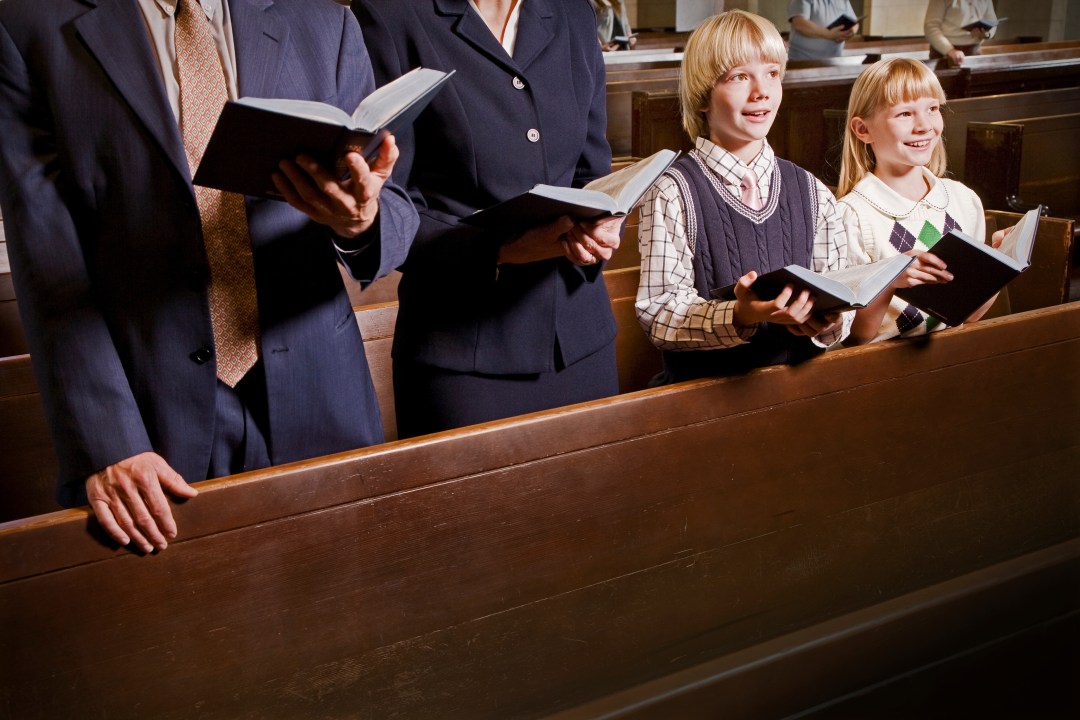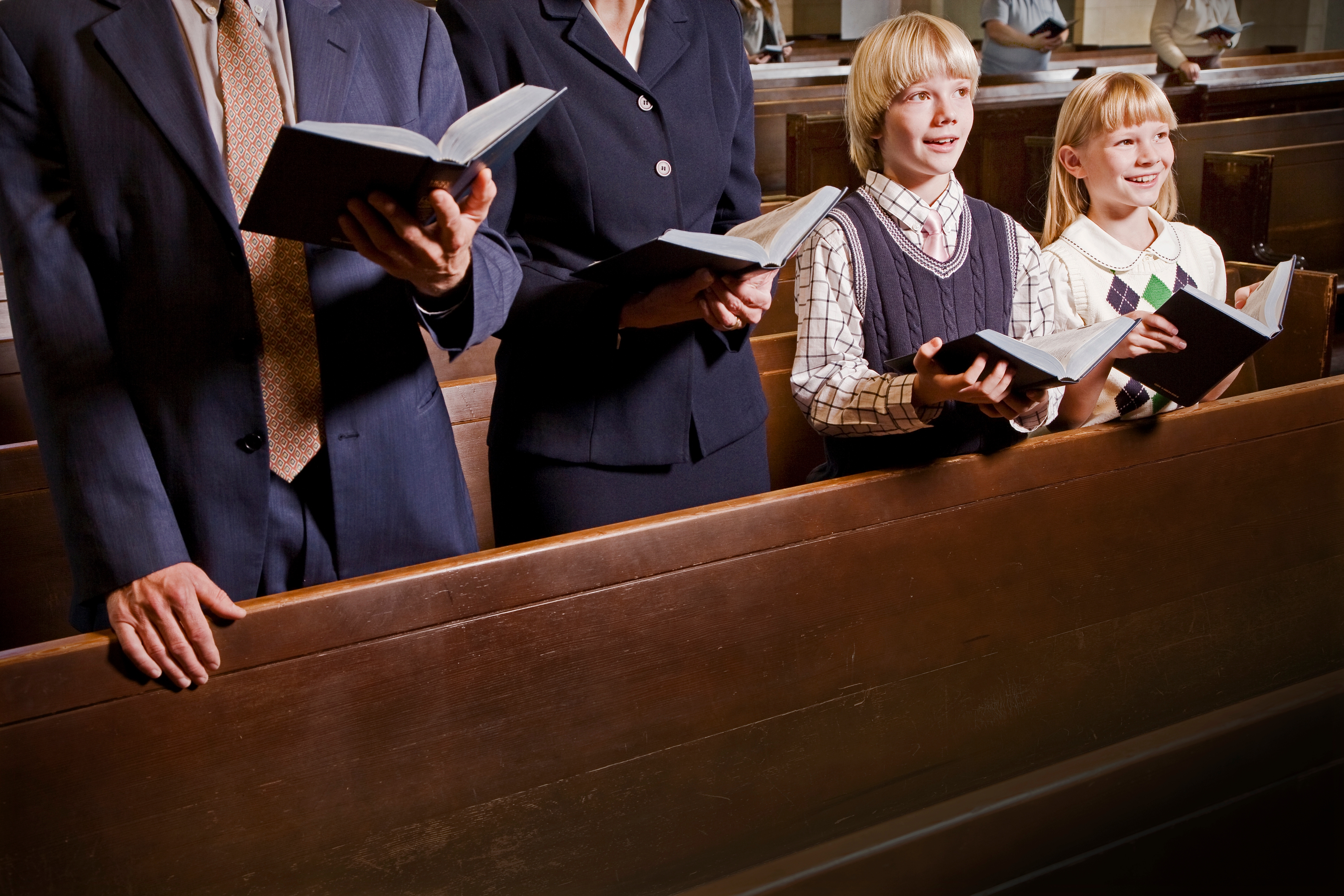Before embarking on this hymn to hymns, I’ll admit that hymn-enthusiasts feel a slight sense of anticlimax on Easter Sunday, when the pleasingly austere hymns of Lent are replaced with the too-happy, exclamation-mark-ridden hymns of Easter. Within minutes of the start of the Easter Eucharist, our mouths will ache from repetitive singing of the over-vowelled word ‘Alleluia’.
I’ll also admit that I sometimes long for hymns to be over. I check to see how many more verses there still are: three down, three to go. I’m relieved if the vicar says ‘omitting verses five and six’ of a slow seven-verser. Anything to speed up our increasingly padded and long-winded Anglican services.
I’m not writing here about how I love hymns — although I do — but about how I need them, and how we all need them, particularly at the moment, and not only because we’ve just witnessed the unbearable sight of an 850-year-old Gothic cathedral burning down before our eyes on television. If we’re addicted to politics, as most of us are, we spend our days watching, listening to and reading people squabbling, shouting over each other, being vile about each other, blaming each other and being withering about everyone but themselves. That has become the climate in which we live: one where it’s not done for anyone to admit they are wrong, weak or sorry.
How powerful it is, then, when singing a hymn in a pew, to find ourselves singing aloud, and communally, but without having to look anyone else in the eye, about our inner disorder, sorrow and frailty. Like wounded soldiers in the first world war crying for their mothers, we find ourselves crying out our remorse and our need for love.









Comments
Join the debate for just £1 a month
Be part of the conversation with other Spectator readers by getting your first three months for £3.
UNLOCK ACCESS Just £1 a monthAlready a subscriber? Log in